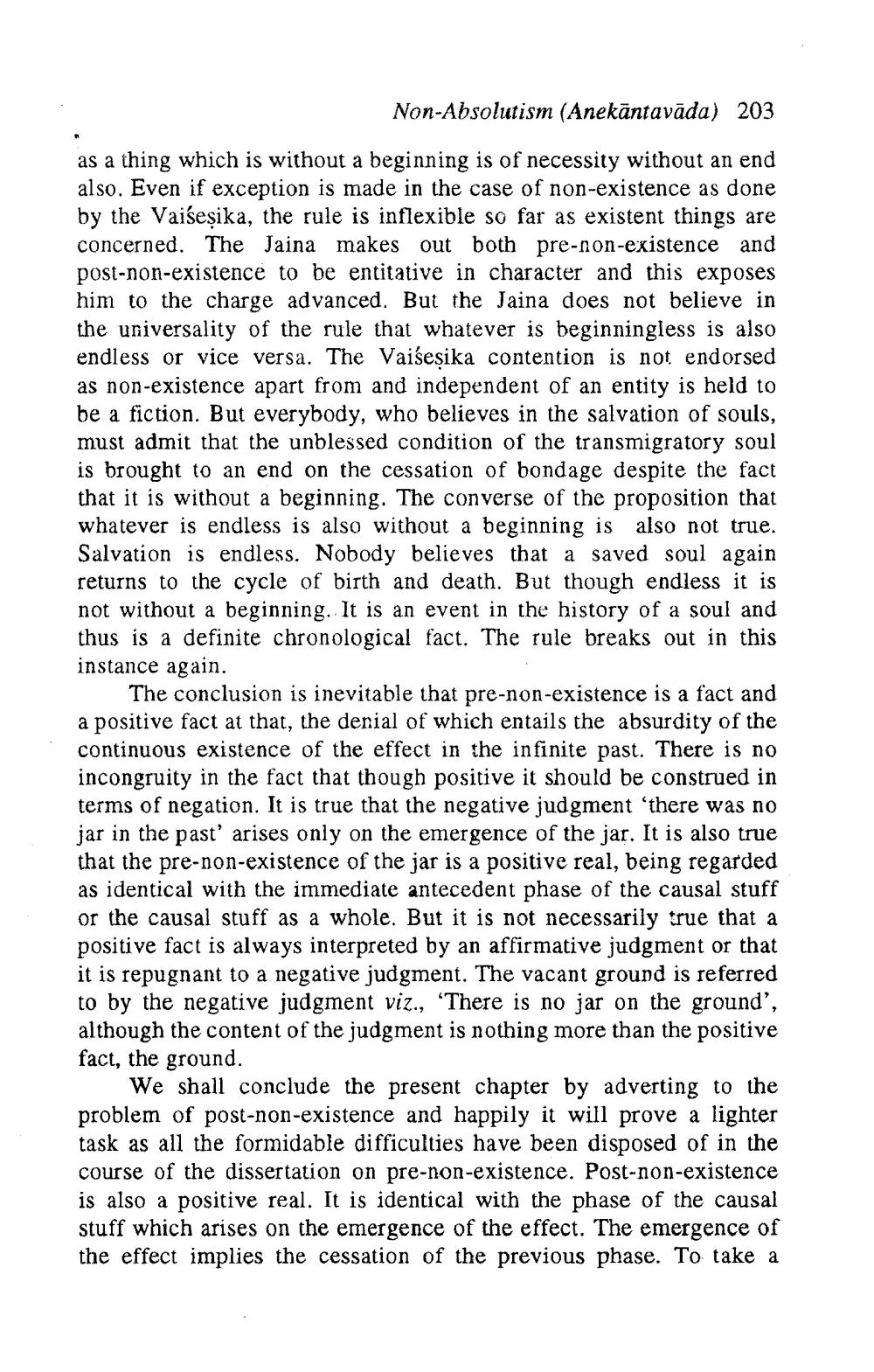________________
Non-Absolutism (Anekāntavāda) 203
as a thing which is without a beginning is of necessity without an end also. Even if exception is made in the case of non-existence as done by the Vaiseșika, the rule is inflexible so far as existent things are concerned. The Jaina makes out both pre-non-existence and post-non-existence to be entitative in character and this exposes him to the charge advanced. But the Jaina does not believe in the universality of the rule that whatever is beginningless is also endless or vice versa. The Vaiseșika contention is not endorsed as non-existence apart from and independent of an entity is held to be a fiction. But everybody, who believes in the salvation of souls, must admit that the unblessed condition of the transmigratory soul is brought to an end on the cessation of bondage despite the fact that it is without a beginning. The converse of the proposition that whatever is endless is also without a beginning is also not true. Salvation is endless. Nobody believes that a saved soul again returns to the cycle of birth and death. But though endless it is not without a beginning. It is an event in the history of a soul and thus is a definite chronological fact. The rule breaks out in this instance again.
The conclusion is inevitable that pre-non-existence is a fact and a positive fact at that, the denial of which entails the absurdity of the continuous existence of the effect in the infinite past. There is no incongruity in the fact that though positive it should be construed in terms of negation. It is true that the negative judgment 'there was no jar in the past' arises only on the emergence of the jar. It is also true that the pre-non-existence of the jar is a positive real, being regarded as identical with the immediate antecedent phase of the causal stuff or the causal stuff as a whole. But it is not necessarily true that a positive fact is always interpreted by an affirmative judgment or that it is repugnant to a negative judgment. The vacant ground is referred to by the negative judgment viz., 'There is no jar on the ground', although the content of the judgment is nothing more than the positive fact, the ground.
We shall conclude the present chapter by adverting to the problem of post-non-existence and happily it will prove a lighter task as all the formidable difficulties have been disposed of in the course of the dissertation on pre-non-existence. Post-non-existence is also a positive real. It is identical with the phase of the causal stuff which arises on the emergence of the effect. The emergence of the effect implies the cessation of the previous phase. To take a




